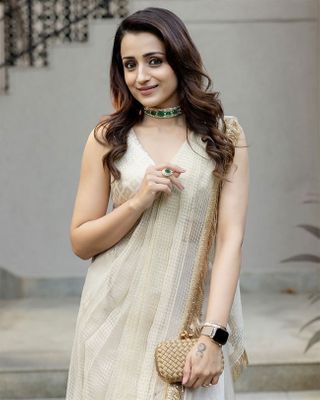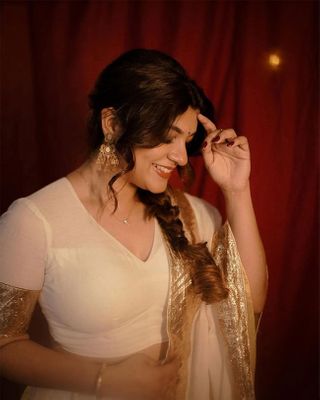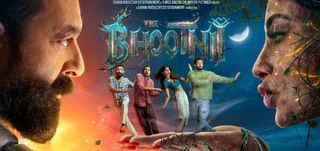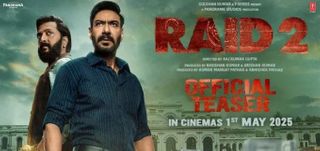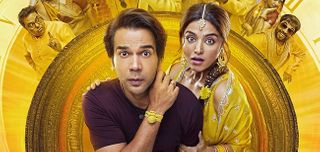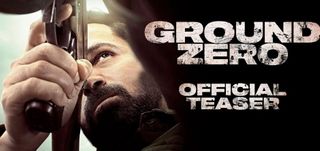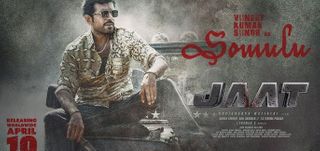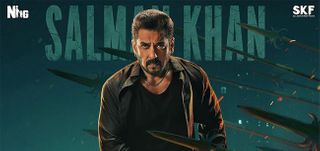The Last Lear Movie Review
Greatness, they say, is never thrust on you. You are either born with it. Or you are not. Amitabh Bachchan is at a place today where nothing and everything he does surprises us.
The Bachchan saga gets one more twist in the tale as the ageing, cantankerous, flamboyant, eccentric and embittered Shakespearean actor battles old age, unwieldy hair and a receding genius.
And what a tale! Rituparno Ghosh specialises in telling stories that pitch two utterly unmatched characters against each other in a battle where the lines are drawn between the egos of the two individuals.
"The Last Lear" is actually a series of dramatic dialogues sewn together in a pastiche that suggests pain to be the constant subliminal text of all human interactions.
So we have this bearded 'intense' director Siddharth (Arjun Rampal) who decides to make a film on the life of an unemployed ageing clown. For the role, he approaches the reclusive wacky stage actor Harish Mishra (Amitabh) who sneers wryly at the very thought of entering cinema at his age, and then warms up to the idea and gives the part his heart and soul.
Interesting possibilities pitching cinema against theatre examined, explored, searched and dissected by the director with the microscopic manoeuvrings of emotions that the camera ferrets out of the human heart and makes visible to our eyes.
In Ghosh's incandescent world of human suffering and redemption, you won't find more than two people in the same room at any given time. Sometimes there are three. But then the third individual is so still in her space, you hardly notice her/his presence beyond a shadow.
Such is the truth of Divya Dutta's character. As the benevolent nurse on night duty to look after the dying Shakespearean actor, she gives the actor's mistress Vandana (Shefali Shah) and his co-star Shabnam (Preity Zinta) quiet company. The two women talk the night away on the man they're both fascinated by.
Ghosh goes backward in time from the night the film featuring Harish Mishra is premiered to the interactive events leading up to his selection and shooting for the film.
The narration is purposely loose-limbed. Even the one-to-one interactions that are the backbone of this beautifully layered chamber-piece are done with the casual grace of a trapeze dancer walking the familiar tightrope blindfolded and not fearful of the fall.
The characters are all in desperate need of redemption. Whether it's the jaded but still-spirited Shakespearean actor or his unhappy overworked mistress, or the model-turned actress Shabnam, or even the young journalist (Jisshu Sengupta) trying to piece together the opulent mystique of the Shakespearean actor's ego and enigma - the characters are perched on the brink of self-destruction, holding on to that thread of self-esteem, which keeps them from that fatal fall.
"The Last Lear" is Ghosh's second film in a row after the Bengali movie "Khela" to be located in the film world. The distance between the 'reality' of the acting world and the realism of the real world where people are often acting before one another, is covered by the sensitive director with supple grace.
The English dialogues are spun in spoken sensitivity. But the words do get in the way of the characters sometimes.
When the film starts Shabnam is on the verge of breaking up with her suspicious husband. By the time she starts shooting with Harish Mishra in a scenic hill station, she's in an off-camera dialogue with her aged co-star and ready to scream out her angst in a war-cry of articulated liberation.
Preity does here what most actors shy away from. She actually listens to her co-stars as they express their angst.
The film is littered with luminous performances. If Divya is quiet and warm in her small role, Shefali simply takes over the screen each time she walks into the frame.
And after "Rock On", Arjun Rampal delivers another pain-lashed performance.
As for Amitabh, he goes from venom to vitality in quick succession, creating for his character a kingdom of theatrical yearnings.
Ghosh has created a world carved out of mahogany-like glistening surfaces, hiding fears and anxieties that have little to do with Harish's age, and everything to do with the rage that the experience of life brings in its wake.
Indranil Ghosh's artwork and Abhik Mukherjee's cameras write out the poetry of the motion picture.
Watch "The Last Lear" to see the layerings of emotion that the director extends into his narration without losing sight of the lightness of touch in the outer crust.
OTHER REVIEWS







